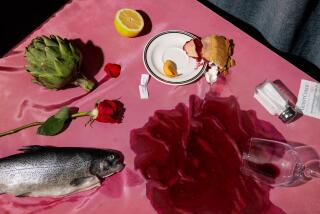Dejected L.A. restaurants serve their last meals, fear for the future
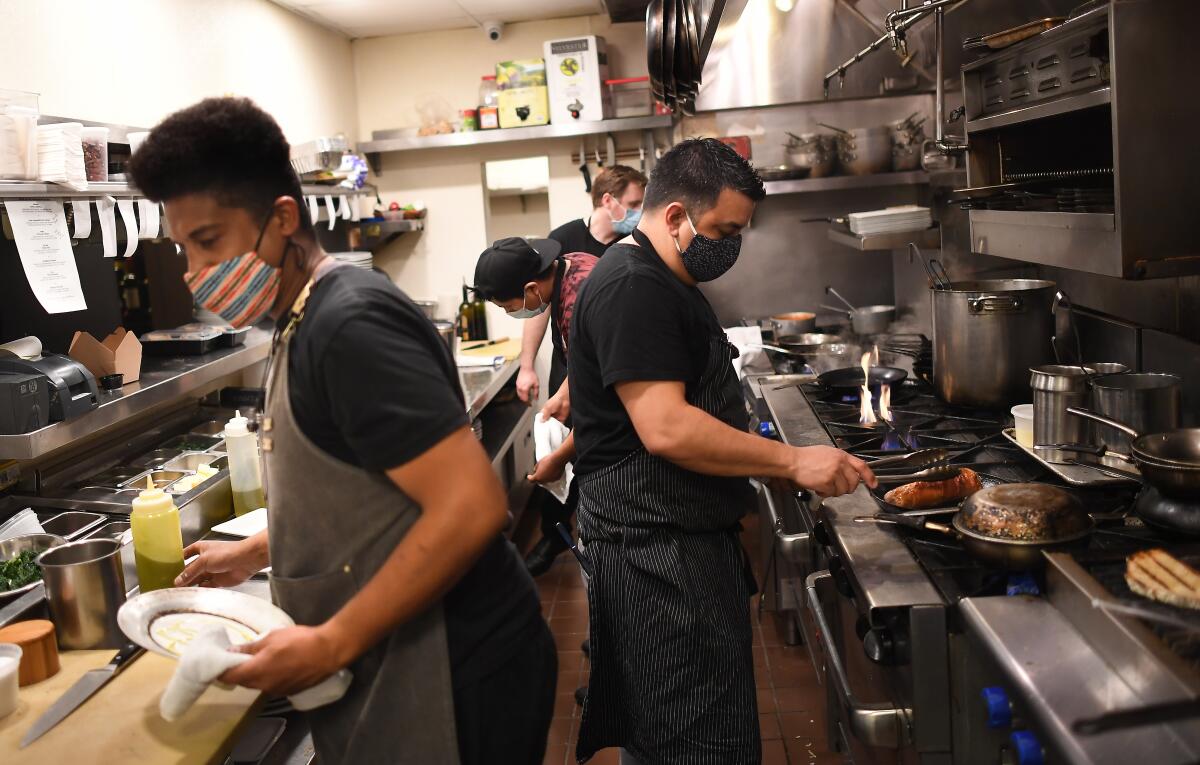
- Share via
The dinner soundtrack at Michael’s on Naples for Wednesday was all about the sad slow jams — classic Motown, Gamble & Huff, Al Green. They tapped into the mood that night at the Long Beach bistro and at thousands of restaurants across Los Angeles County.
It was the precious last hours before health officials had ordered all outdoor dining to stop for at least three weeks to try to slow down an explosive rise in coronavirus cases.
Regulars packed into Michael’s two rooftop patios as much as social distancing protocols allowed. The staff was as attentive and cheerful as always, even though all the workers would lose their jobs at end of their shifts for the second time this year.
I slurped on a fine mafaldine — a ruffled ribbon pasta enlivened with prosciutto — and sipped a strong boulevardier. And I stewed.
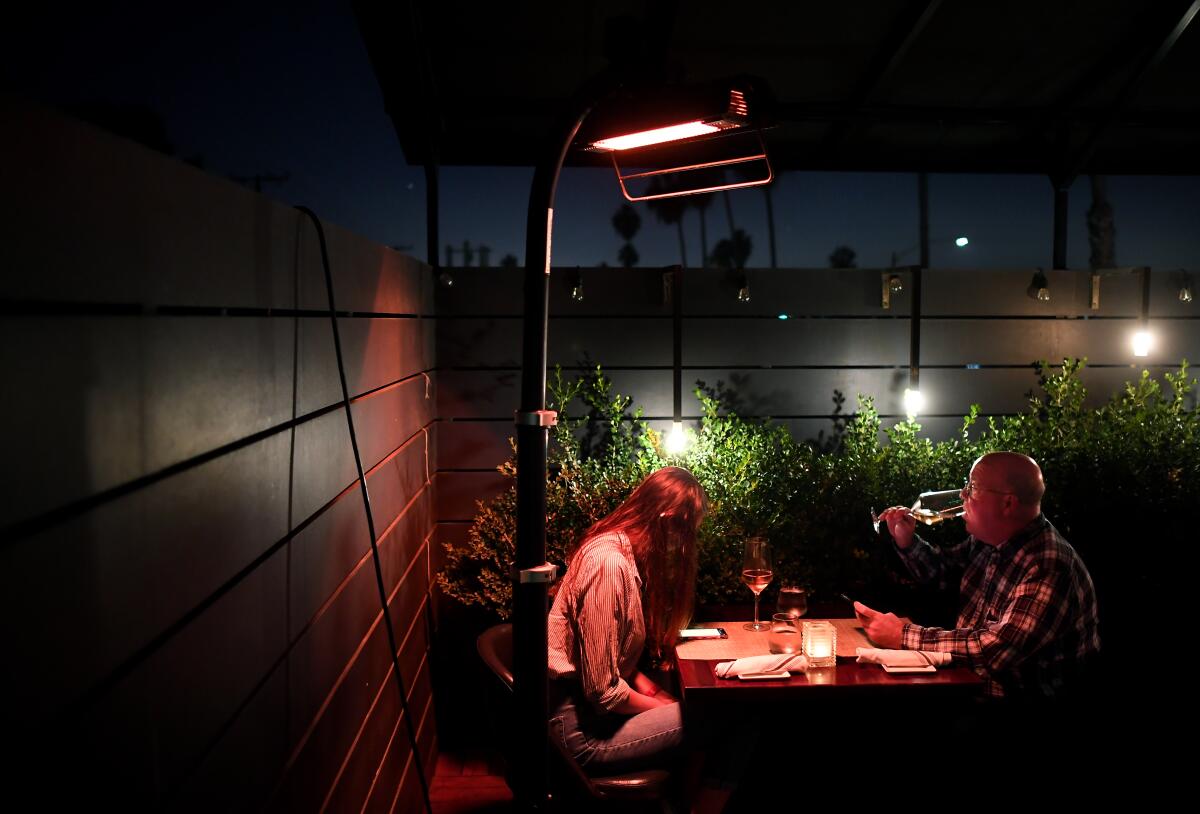
It was the conclusion to a long, delicious — and frustrating day. To capture the pulse of a citizenry that’s hangry (that’s “hungry” and “angry” sauteed together, gentle readers), I traveled across Los Angeles to talk to restaurants owners and their customers about this second alimentary Armageddon.
I drove down three iconic L.A. streets — the one that turns from Avenida Cesar Chavez to Sunset Boulevard, Olympic Boulevard, and Normandie Avenue — to see how this most recent Last Supper would play out. Except I also sought a Last Breakfast, Brunch and Lunch.
But let’s begin in the beginning: In March, health officials across California forced restaurants to offer takeout only to try to fend off COVID-19. L.A. County slowly allowed them to resume some operations — first outdoor dining, then some limited tables indoors. But that initial hit crushed the dining industry, with too many restaurants shutting down for good.
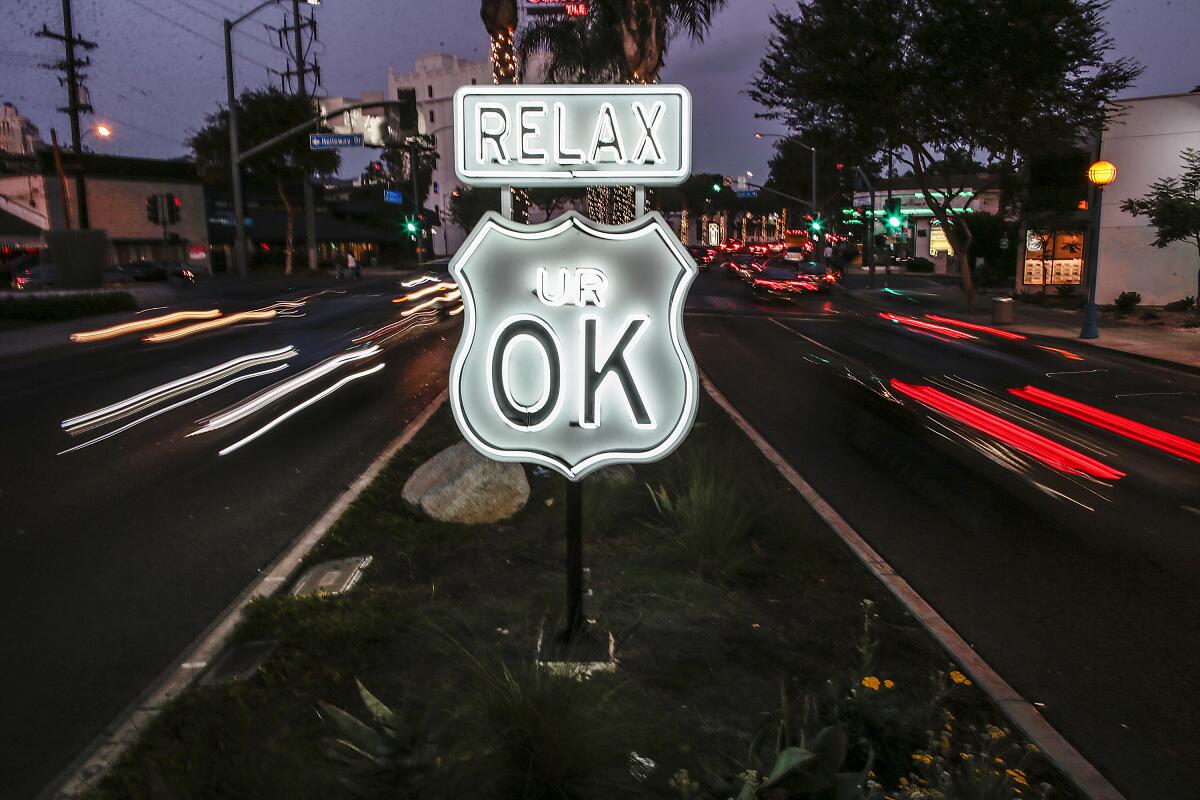
And now another gut punch?
Eaters across Southern California raged.
“It’s a sad situation for everyone,” said 41-year-old Long Beach resident Heather Waider, who dined at Michael’s with her husband, Marvin, and their two sons.
“It’s a joke,” added Marvin. “I don’t know what these guys are going to do. My heart hurts for these people.”
“These politicians just don’t get it,” said Artemia Murcia. The 46-year-old enjoyed huevos divorciados at Tamales Liliana in East L.A. under a giant yellow-and-red tent in the parking lot. “Not letting people eat outside doesn’t kill coronavirus, but it’ll kill restaurants.”
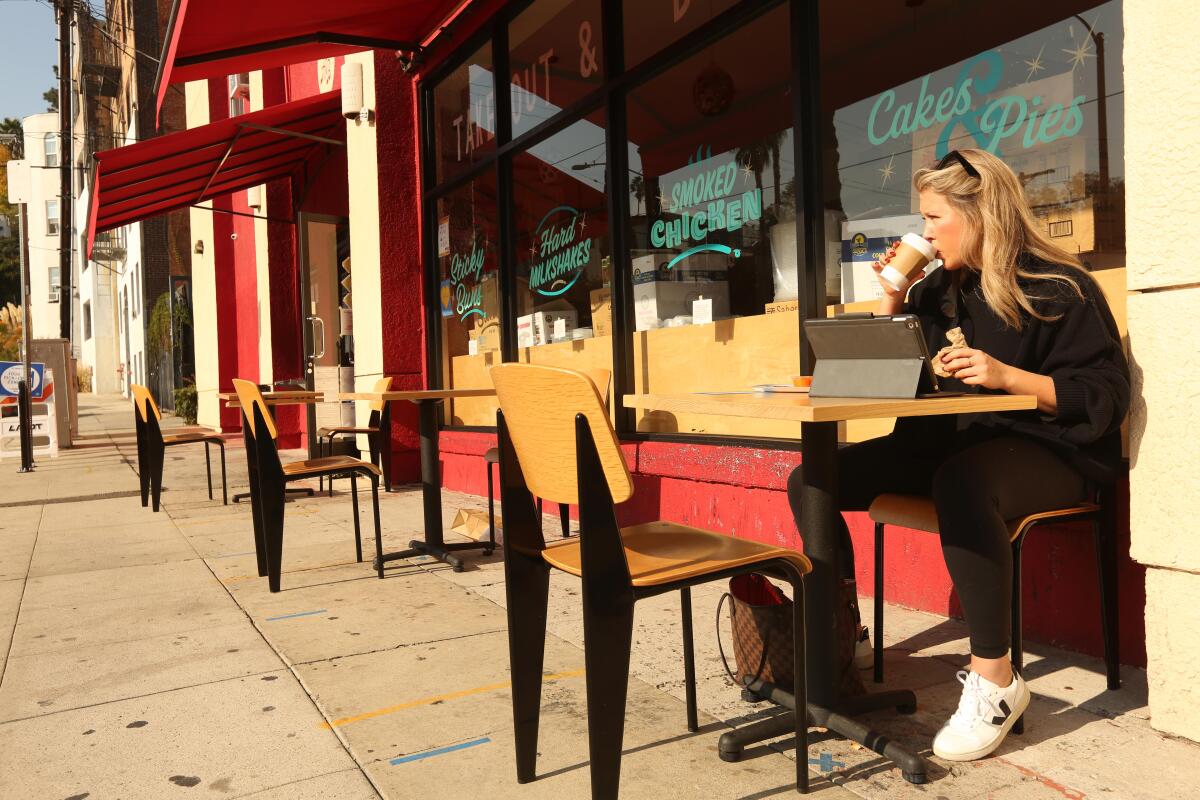
“It sucks,” said Kaylee Anchulis, a 25-year-old software developer. She enjoyed a biscuit sandwich at All Day Baby in Silver Lake as she talked to her mother via phone. “I hope that people will order out, but business will definitely drop. At least going out, you can pretend that things are normal.”
I agreed with their words. My wife runs a restaurant, and less severe closures in Orange County have nevertheless hurt her revenue to the point I’m a cashier as well as a columnist (my customer service for both is unsurprisingly terrible).
Gov. Gavin Newsom has announced a stay-at-home order affecting most of California.
But because I have a front-row seat to restaurants and the coronavirus, I also understand why health officials issued their edict — and why the restaurateurs I interviewed accept it, even as they hate it.
We all have to pitch in to tackle the coronavirus. But part of that is to reward those businesses that do it right, and punish the ignorant. What all the owners I interviewed complained about the most is that they said no one with the local government — not the L.A. County Board of Supervisors, not health officials — has reached out to ask restaurants how to work together. But they were prepared to go along for the common good.
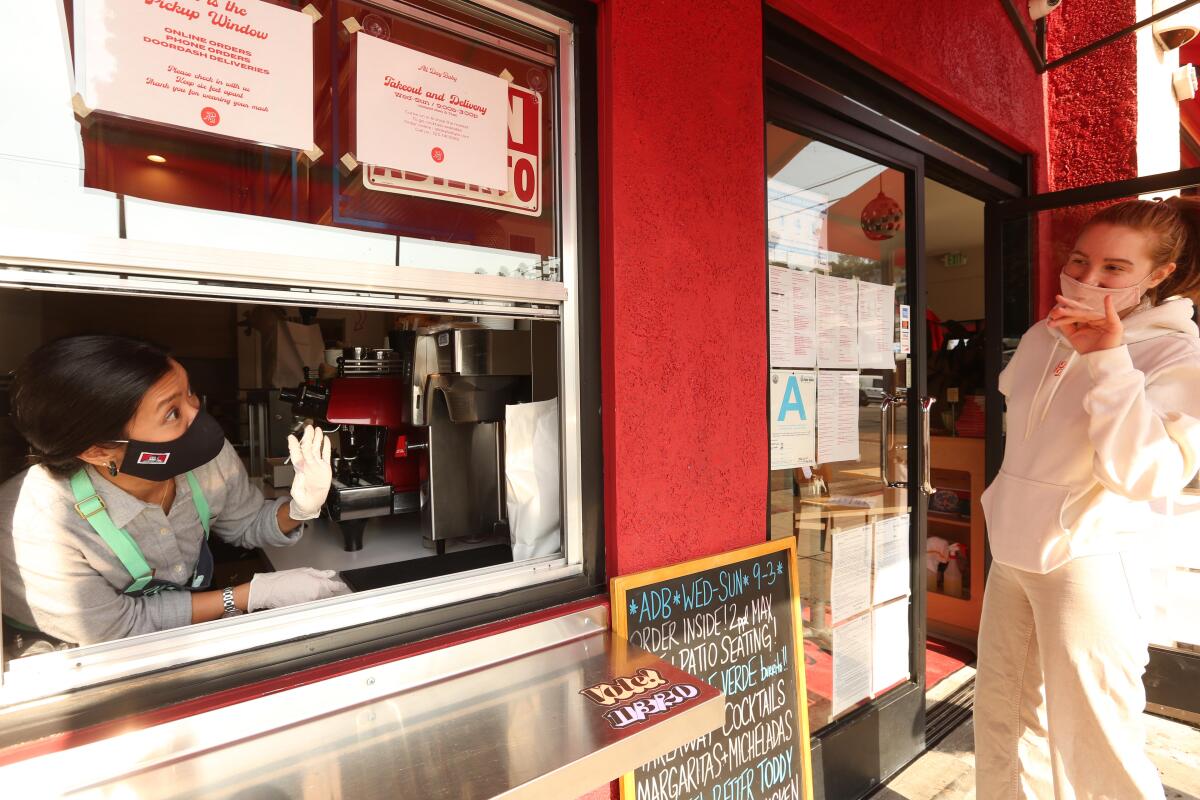
“It’s necessary, because it’s our health,” said Walter Soto. He’s the owner of my current favorite taco trailer, El Ruso in Boyle Heights. Just a couple of weeks ago, Soto and his brother created a makeshift patio in the empty parking lot they use for seating by installing an awning and a wooden fence.
“I’ll be fine,” he continued. “I own my trailer. But people who have to pay rent on a space? May God protect them for what’s coming.”
“It starts with three weeks, then it goes into another three,” said Eric Samaniego, executive chef at Michael’s. He sat down with me before the dinner rush and had the look of an overmatched boxer who wasn’t going to give up — but, man, did he need a breather. “None of the data will ever be as low as it needs, because there’s always going to be people who don’t think coronavirus is real. And so those of us who’ve been doing it right from the start get crushed.”
::
I started in East L.A. and Boyle Heights, where tents bloomed everywhere for breakfast. Icons like El 7 Mares. Mainstream chains like Dennys. Taquerias and panaderias and more.
The tents disappeared as Cesar Chavez turned into Sunset Boulevard around Echo Park. There was no real need for them: Most of the older restaurants were already takeout spots, and newer eateries made do with a couple of tables and umbrellas on the sidewalk. Tellingly, the busiest line was outside the iconic French restaurant Taix … but it was for free coronavirus testing at the Edendale branch library next door.
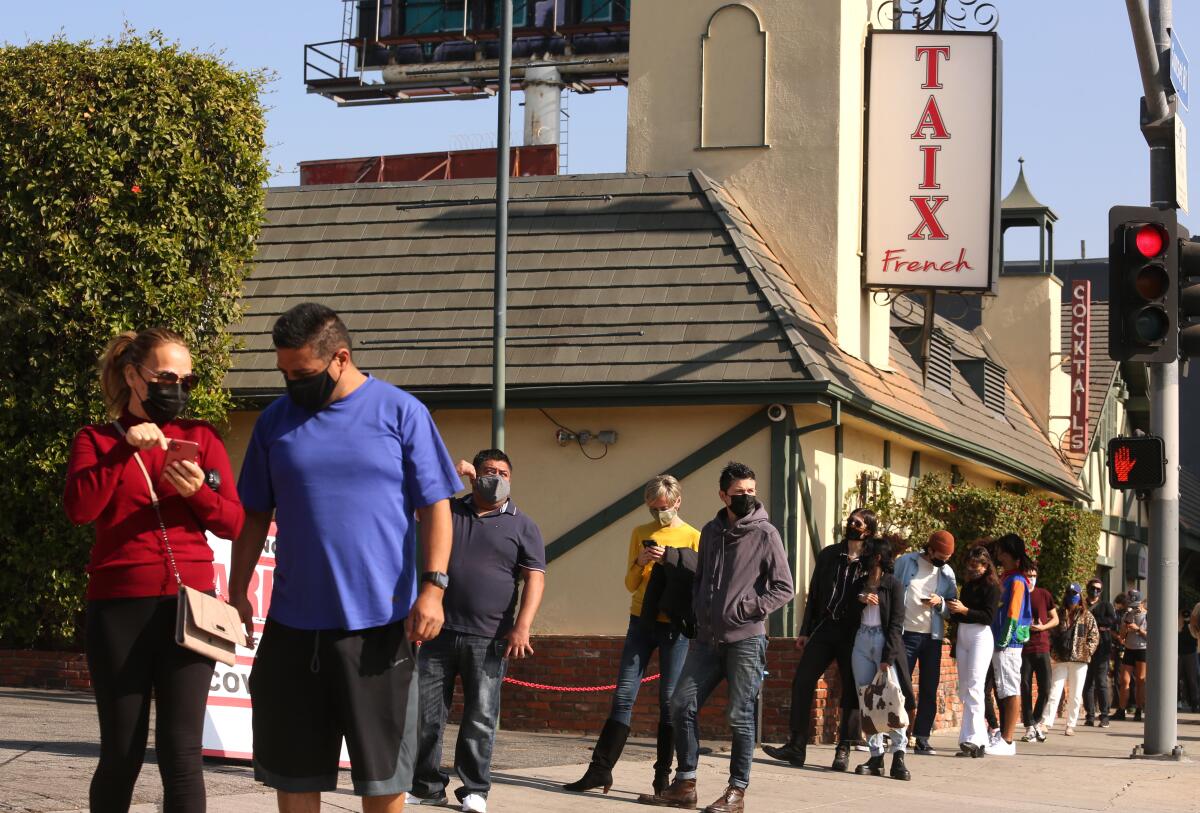
I stopped at All Day Baby because coronavirus shutdowns keep slamming owners Lien Ta and Jonathan Whitener. Its sister restaurant, Here’s Looking at You, closed in July, unable to recover from the original L.A. County timeout. In October, Ta and Whitener opened a pop-up weekend dinner series called Helluva Time in an empty parking lot across the street from All Day Baby.
“People were excited,” said Ta, who took a break from working the register to stamp brown paper bags with her restaurant’s logo. “A lot of them said it was their first pandemic dining experience, and they were happy to do it with us.”
But there were also people who mocked Ta’s request to keep their masks on when not eating. Helluva Time closed at the beginning of this month.
“I could already sense the energy that people were staying in,” said Ta, who added that this most recent nighttime dinner suspension “makes sense. We don’t have [the coronavirus] under control. But there are a bunch of us who are earnest and do the right thing. But we have no help. Right now, you always lose.”
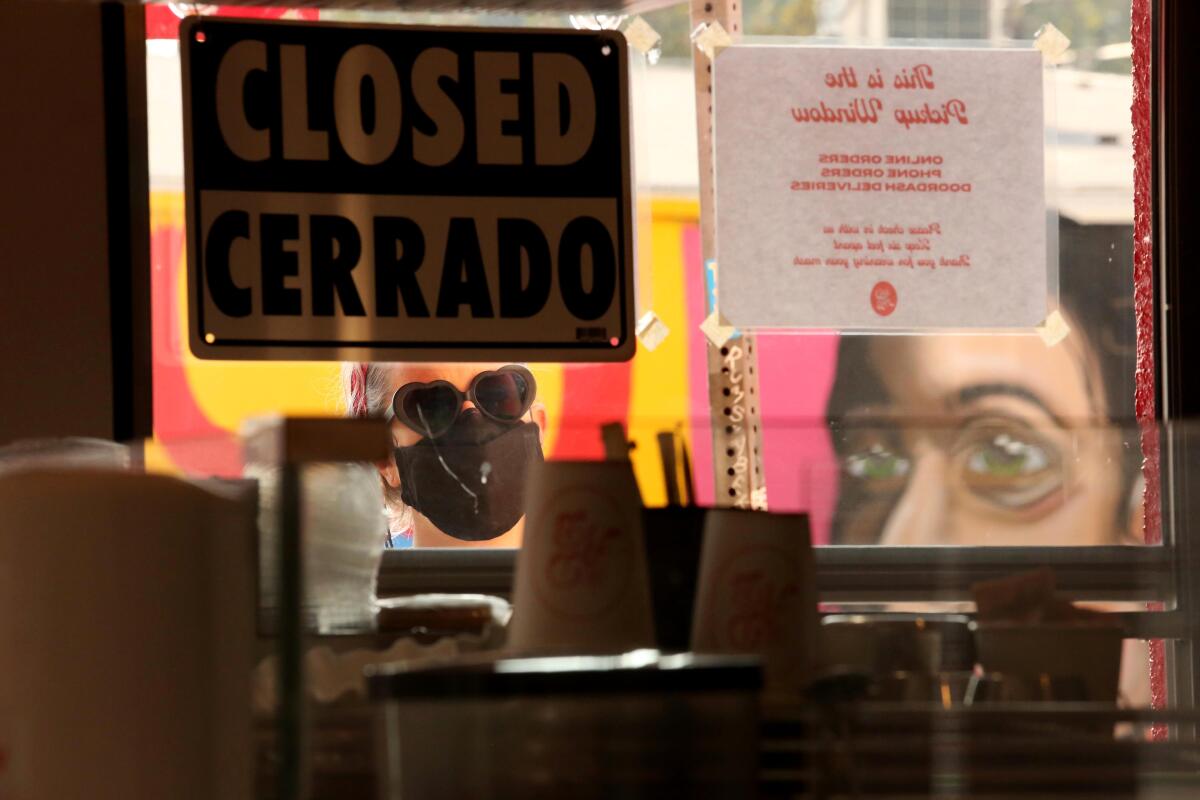
From All Day Baby, I swung by El Ruso only to find it closed for Thanksgiving. So I took Olympic all the way to Guelaguetza, the iconic Oaxacan restaurant in Koreatown.
Along the way, I saw a suffering food scene.
At Mariscos Jalisco, a planter which I’ve sat on often to enjoy its famous shrimp tacos was now roped off with a warning that eating in front of the lonchera was prohibited.
At Mercado Olympic, street vendors sizzled and smoked delicious meals as usual but had no crowds whatsoever. On the outskirts of Koreatown, the busiest food business I saw was a line outside a health clinic near a Northgate market.
There was at least a good lunch crowd at Guelaguetza. The Lopez siblings who run the place converted what was once a driveway into a patio with colorful umbrellas, wooden benches, potted bamboo plants and a sound system that played rock en español and sonidero as I enjoyed chilaquiles.
“This really reflects how it is in Oaxaca,” said co-owner Bricia Lopez. She tried to keep a cheerful attitude, even though her staff was half the number it was before the coronavirus, and all the workers were going to get their hours reduced by as much as two-thirds starting Friday.
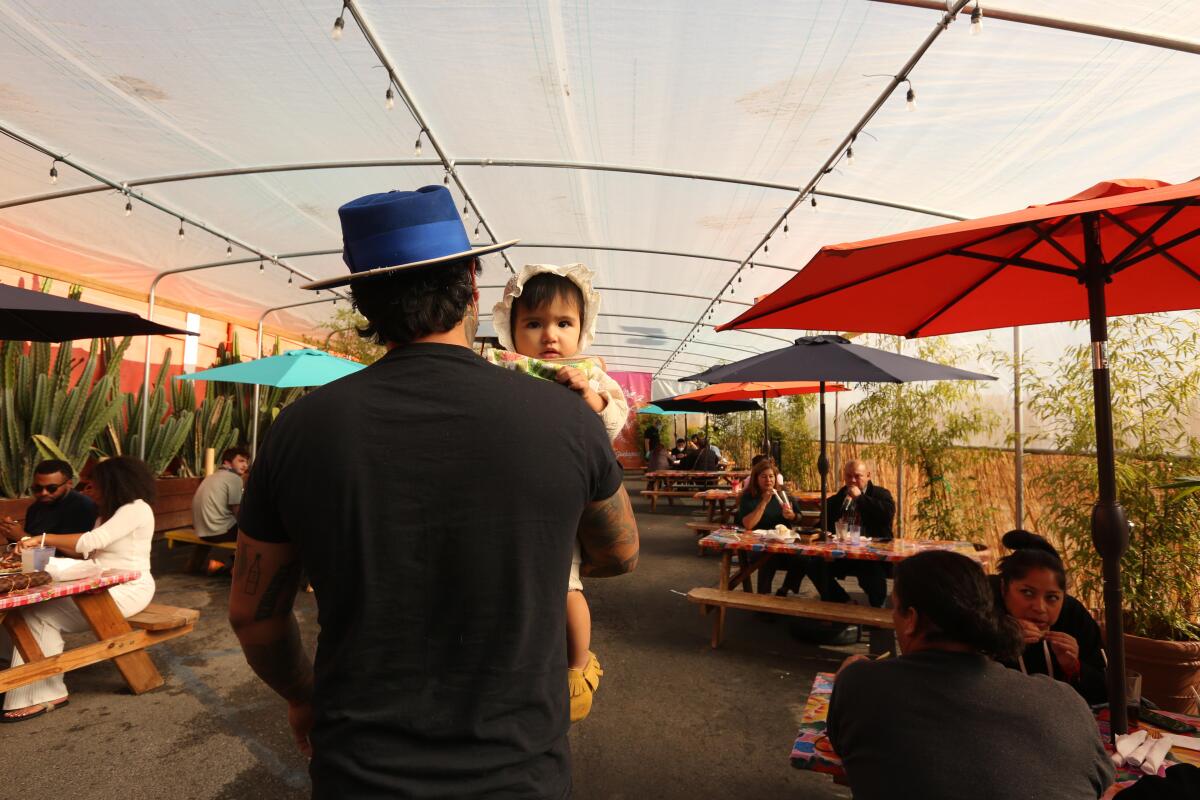
Even though outdoor dining was going to be prohibited, Lopez refused to break down the patio.
“It’s like sweeping the floor if someone is going to visit,” she said. “It helps the morale. It gives you hope. “
But she knows the outlook is grim for her industry. Lopez belongs to a group thread of L.A. female restaurateurs who all fret for the future — and are frustrated.
“Everything that this city takes pride in, that leaders sell to the world that we are, restaurants built,” she said. “There’s going to be a flood of closures because of this.”
She puts the blame simultaneously on county health officials who punish the good restaurants because of the bad ones — and the bad ones for screwing it up for the good.
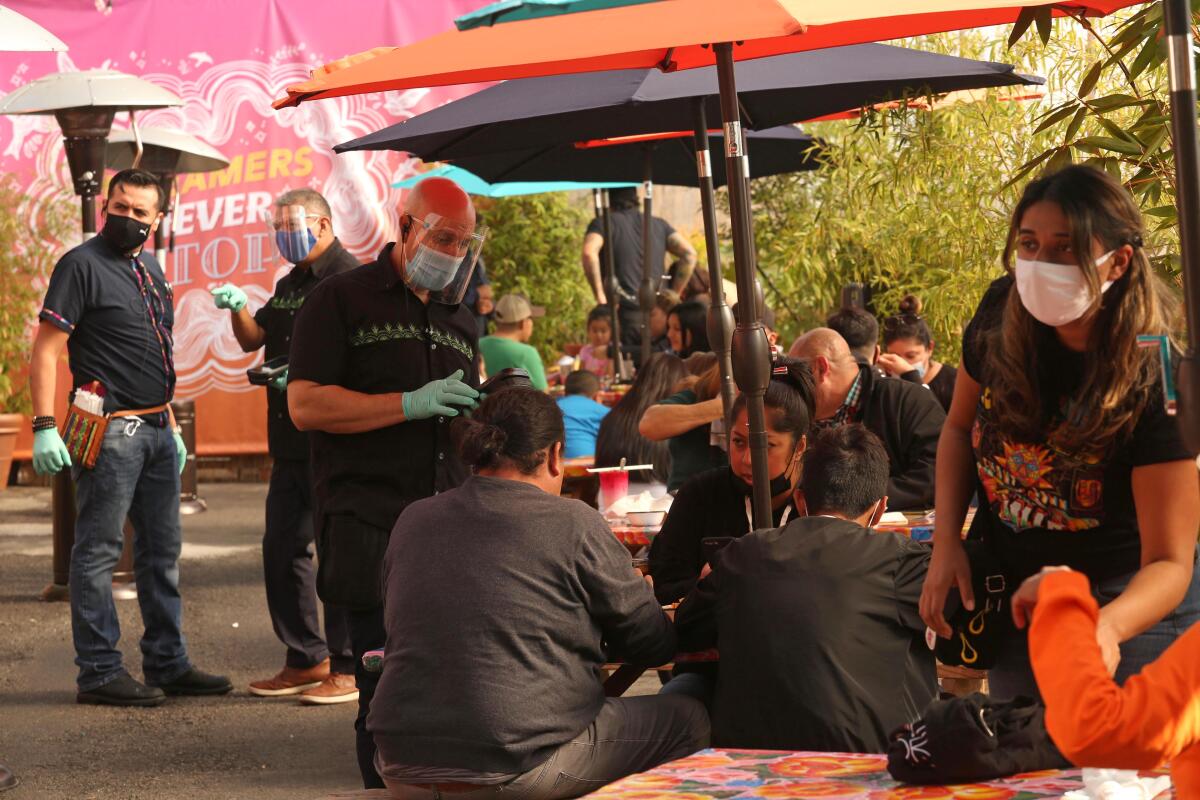
“I have an A,” Lopez said, gesturing to the L.A. Department of Public Health letter grade on Guelaguetza’s front door. “Why can’t I have one for COVID protocols? Bad restaurants are the reason why we’re in this.
“Ven la tempestad, y no se hincan,” she added, using a Mexican proverb.
They see the storm, and they don’t kneel.
::
The drive down Normandie offered the sobering discovery that I saw nearly as many banners for food giveaways as I saw patio dining.
The long drive convinced me that the restaurant shutdown was foolish. Why should good eggs like All Day Baby and Guelaguetza suffer closures at the expense of their livelihood?
Then I drove through 2nd Street in Long Beach.
It was like spring break in Florida. People packed into parklets and tents with no masks and no attention to six-foot rules.
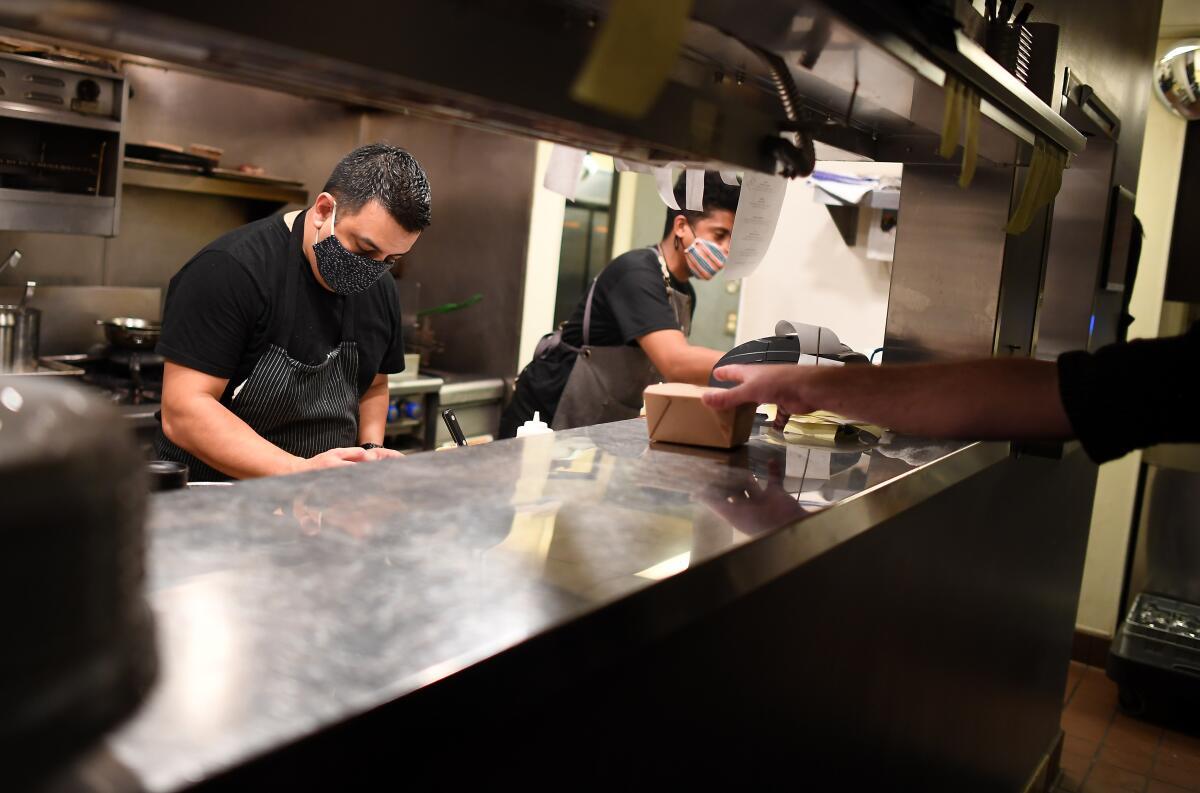
“I drive by and think, ‘Come on, dude, you’re not even trying,’” said Eric Samaniego of Michael’s on Naples. “It’s almost December, and people are still forgetting their masks. Really? How are we forgetting a mask right now?”
Michael’s has COVID-19 protocol out of a hospital. Cheery hostess Elizabeth Reyes commanded me to sanitize my hands when I entered, then sat me about 12 feet away from anyone else. The 22-year-old felt sad that she and her co-workers wouldn’t work for the foreseeable future but said that, nevertheless, the shutdown was necessary.
As I left, I overheard a customer complain that she didn’t need to sanitize her hands.
Reyes wouldn’t budge. Nor should she. Because as she told me on this dreary eve:
“It’s our only way to get things in order.”
More to Read
Sign up for Essential California
The most important California stories and recommendations in your inbox every morning.
You may occasionally receive promotional content from the Los Angeles Times.



